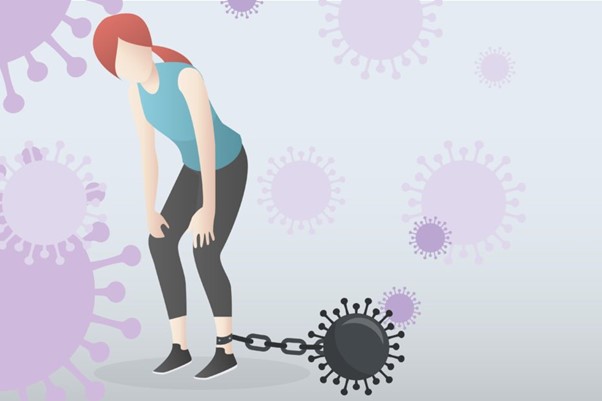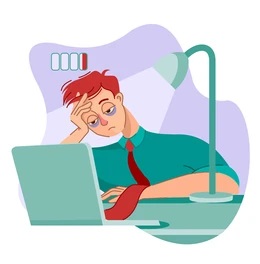Fingers remain tightly crossed around the world that the rampant hospitalization and fatality stage of the Covid-19 pandemic has generally peaked. Vaccination programmes are accelerating, and restrictions are gradually being lifted. If it was not enough for HR departments to be managing the return of workers to the office and organising possible hybrid working arrangements for their employees, they now have Long Covid to contend with.

It has been estimated that as many as one in ten of people who have contracted Covid-19 continue to experience symptoms that vary wildly in both nature and severity for weeks or months afterwards. In the U.K. some claim 300,000 people are living with condition to varying degrees. The symptoms of Long Covid (sometimes known as Long Haul Covid) can range from a loss of taste or smell, dizziness, to respiratory difficulties, blood clots, anxiety, depression and even organ damage. Worryingly, there are concerns that much of the problem is being masked – either by continued home working, or because workers are still receiving help through the furlough scheme. However, government support is being withdrawn entirely in September.
HR departments should be aware that the symptoms and impact vary from person to person and as such they must review each worker on a case-by-case basis. By treating this still-evolving condition in the same way as they do other chronic illnesses, employers can proactively address Long Covid-related disabilities. “HR can protect their employees and their companies by becoming familiar with Long COVID, treating employees complaining of these symptoms with empathy, and developing clear policies and procedures to address workers who complain of residual symptoms after recovering from COVID,” said one consultant.
Sophie Metcalf, head of HR at Expect Distribution, told People Management that HR can be doing a number of things to prepare for Long Covid among the workforce, but the most important is preparing your workforce for a significant loss of skills, says Metcalf: “We need to bolster our business to accommodate Long Covid – that means making sure we have multi-skilled employees. It is good practice in any business to not rely on one person to do a particular role, because if that person is off sick you are left with a vacuum. The lesson we have learned over the last six months is that businesses need to be more agile.”
Sufferers of Long Covid interviewed by Monica Torres, writing in the Huffington Post, said that the three most important things they would like HR managers to understand are:
Human resources consultant Kate Underwood believes employers should be conducting “return to work” interviews with staff who have been sick, to find out how best to accommodate them. “It is about being reasonable,” Underwood said. “If someone says they can work for half a day in the morning because they are better in the mornings, and from home, just let them do it. For their own mental health, it is going to be the best thing for them.”
HR and employers are not helped by the fact that Long Covid, although acknowledged by Government, has not been recognised in the UK as an occupational disease or disability. An All-Party Parliamentary Group on Coronavirus is pressing for that to happen.
The TUC in June called for Long Covid to be recognised as a disability, which would mean workers are protected by the Equality Act and have a right to get reasonable adjustments at work, such as flexible working, longer rest breaks, specialist software or equipment. It also said that it should also be designated as an occupational disease. “That would allow workers who contracted Covid-19 at work, and are living with the consequences, to claim the compensation they are due, “said General Secretary Frances O’Grady. The Government are understandably mindful of the costs of doing so and the fear of the “invisibility” of many of the symptoms leading to widespread abuse.

But for those who have suffered and are suffering with Long Covid the experience is all too real. One of the worst thing patients are having to grapple with is the not knowing when it will come to an end. HR consultant Steve Carpenter explained: “Support for Long Covid patients is currently nil, so I have no timeline for recovery. Even now I have asked my GP if there is anything I can do to make myself feel better and they have said they have no solution. If you have a muscle injury, they give you exercises to make you feel better, but there’s nothing like that for long Covid.”
Martin Knight, Industry Slice.
created with
Website Builder Software .